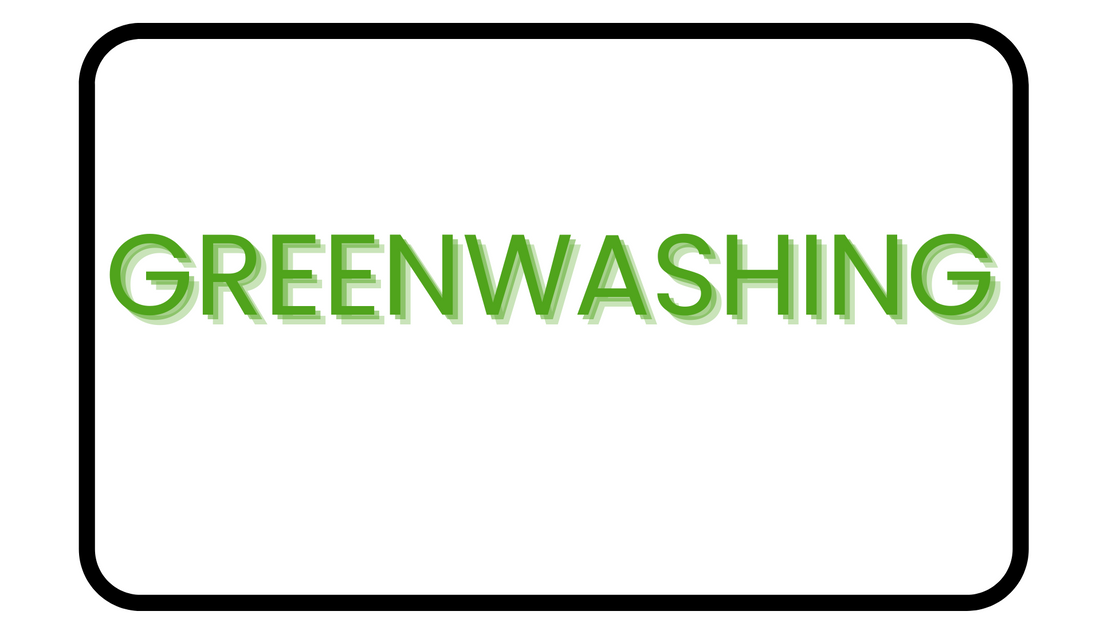
Greenwashing: Deciphering a deceptive strategy
Share
In a world where demand for environmentally friendly products continues to grow, some companies do not hesitate to use questionable practices to attract environmentally conscious consumers. This is called greenwashing . But what does this term mean, and how can you spot it? Let's find out together everything you need to know to avoid falling into this trap.
What is greenwashing? 🧐
Greenwashing is a marketing strategy used by some companies to give themselves a misleading green image. Rather than actually committing to an environmentally friendly approach, these brands invest in advertising campaigns and "green" slogans to appeal to consumers without changing their practices.
How does greenwashing work? 💡
Greenwashing relies on well-honed techniques to manipulate public opinion. Here are the most common ones:
- Ambiguous or misleading language : using vague terms like “natural,” “eco-friendly,” or “sustainable” without concrete evidence.
- Design that inspires nature : green packaging, images of leaves, and “eco” logos to suggest an environmental ethic.
- Uncertified labels : creation of logos or in-house labels that imitate official certifications but have no real value.
- The emphasis on a single ecological aspect : a product is presented as eco-friendly because it contains an organic ingredient, but the entire production process remains polluting.
Why is greenwashing problematic? 🤔
Greenwashing has significant consequences on several levels:
- It misleads consumers : customers think they are supporting an ecological approach, when in fact they are potentially financing companies that are not committed.
- It slows down change : by simply “greening” their image, these companies are not investing in real sustainable solutions.
- It discredits genuine initiatives : truly committed brands struggle to stand out from the crowd when faced with an overabundance of false labels and misleading messages.
How to spot greenwashing? 🔍
Here are some tips to identify and avoid greenwashing when shopping:
1. Check the certifications 🌱
Look for recognized labels like Cosmebio , Ecocert , or Nature & Progrès in the field of organic cosmetics. These certifications guarantee authentic practices.
2. Read the ingredients 🧴
A truly organic product will clearly state its ingredients and their origin. Be wary of vague terms like “natural extracts” or “inspired by nature.”
3. Analyze the entire company 🏢
Learn about the brand's overall practices. An ethical company doesn't just produce one "green" product, but takes a sustainable approach across the board.
4. Beware of vague slogans 📢
Phrases like “good for the planet” or “natural product” should be accompanied by tangible evidence. Look for detailed information on the brand’s website or packaging.
5. Question unknown labels 🚩
If a product has a label you don't recognize, do a quick search. Many fake labels are used to mislead consumers.
How to encourage a real ecological commitment? 🌎
As a consumer, you can play an active role in encouraging companies to make a sincere commitment to environmental protection. Here are some tips:
- Favor transparent brands : those that clearly explain their processes, ingredients, and commitments.
- Invest in quality over quantity : opt for durable products, even if they are a little more expensive.
- Educate yourself : learn to recognize official labels and authentic practices.
- Support small, committed businesses : they often have a more sincere and respectful approach.
Ethical alternatives available on our store 🌿✨
At Beauté Protégée , we are committed to offering only truly organic cosmetic products, with reliable certifications such as Cosmebio , Ecocert , and many others. Each product is carefully selected to guarantee total transparency and natural effectiveness. 🌱
🌟 Discover our flagship treatments:
- Lavender hydrosol to soothe and purify the skin.
- Organic jojoba oil to moisturize without weighing down.
- Shea butter lip balm for intense nutrition.
Choose responsible and authentic beauty. 💚
In conclusion: informed purchases for a better future 🌟
Greenwashing may seem harmless, but it has significant impacts on our planet and our ability to drive real change. As a conscious consumer, you have the power to make a difference by supporting honest, committed brands.
Together, let's say no to greenwashing and yes to truly sustainable beauty! 🌿✨
